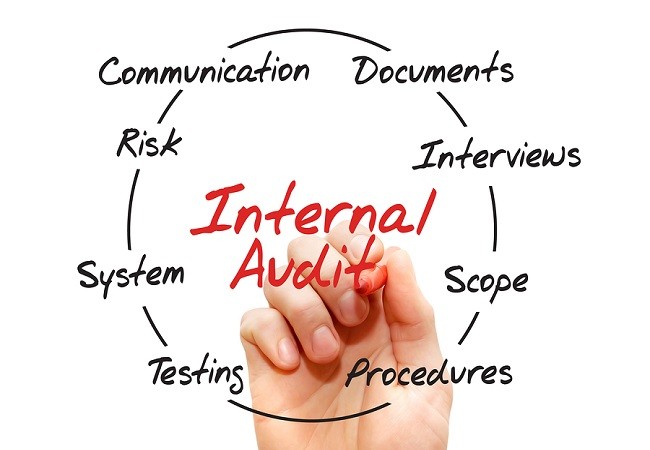What is an Internal Audit?

What is an Internal Audit?
Many modern enterprises have become huge and sophisticated. This has resulted in the decentralization of the activities and consequently, the top management is remotely concerned with the day-to-day activities of the concern. Thus, they will appoint an Internal Auditor for the purpose of performing an Internal Audit within an organization for an assurance of reliability.
An Internal Audit is an in-depth analysis of a company or organization’s performance with respect to the organization’s business plan or other predefined performance benchmarks. An internal audit provides management and the board of directors with vital information about several aspects of the company’s activities and helps them move forward with plans to build a business and increase profits.
Less effective business activities will be pointed out and suggestions to improve effectiveness may be presented. Auditors provide advisory information only and do not have any control or authority over business operations. The actual business activities being audited are usually specified in the mandate calling for the audit.
This list of audited activities can include management effectiveness, the efficiency of operations, compliance with laws and regulations, or any other aspects of business operation as defined in the audit request documents. Audits may also look into fraudulent activities, the validity of financial reporting processes, or the potential for financial loss.
The actual scope of an internal audit is defined in the audit blueprint or in the contract with an outside auditor. Audits may be requested by a government agency, a business lender, or business management. Internal audits may be scheduled in the business plan to keep the business on track. The intent of an internal audit is not to penalize a business, but to provide useful information to improve overall business operations or to provide a risk assessment.
An Internal Audit focused on risk management will often identify hidden risks and offer suggestions to counterbalance both new and well-known risks.
Why Internal Audits are performed?
Internal audits are very valuable tools for assuring a business’ management is following the correct path to business growth and profitability. Audits can reveal weaknesses in the management processes in use and suggest changes to ameliorate any discovered weaknesses.
A company’s utilization of resources can be evaluated to promote the most efficient consumption of resources. A company’s resources will include financial resources, workforce and human resources, natural resources, property – both tangible and intellectual, and anything that contributes to the company’s profit.
The actual reasons for internal audits are as varied as the types of information they can provide. The authorization for an audit will establish the scope of the audit and the type of information expected, which will be disclosed in a formal document called the Internal Audit Charter. Without some specific direction in the authorization documents, the results of an audit will be unpredictable or perhaps unreliable.
Requesting an audit without establishing the scope and focus is like hiring someone to paint your car but not specifying a color. Reputable audit and accounting firms will require specific instructions in the authorization documents. If an organization has established an audit division the scope of audits performed by the division will be predetermined when the audit division is set up. Sometimes the scope is specified in the authorization documents.
Who performs Internal Audits?
Internal audits are performed by outside accounting and auditing services or by auditing departments within the organization. Smaller organizations are unlikely to have dedicated auditing departments so outsourcing this function is the only option. For larger organizations with established auditing functions, the decision about auditors becomes more complicated.
If an audit is mandated by an external entity such as a lender or a government agency the choice of an auditor may be specified in the mandate. Internal audits requested from within an organization will most likely utilize the organization’s auditing functions unless absolute objectivity is very important. The suggestion of objectivity is more easily presented by an outside auditing agency.
The quality and integrity of the information reported by the auditor are important. Reputable auditing agencies rely on a strong reputation of integrity.
What information is discovered in Internal Audits?
The information revealed by an internal audit is primarily established by the scope specified in the authorization documents or internal audit charter. The request for an audit will indicate the scope of the audit and suggest the type of information the audit will return.
What qualifies an Internal Auditor?
The Institute of Internal Auditors (IIA) is an established Professional Network, which regulates the world-wide recognized qualifications of internal auditing such as Certified Internal Auditor (CIA). IIA provides certifications for individuals as certified professional internal auditors and certified auditors in specific areas of specialization.
Any valid accounting and auditing firm will be staffed by certified audit professionals in any of the several audit disciplines. Certified auditors will have demonstrated knowledge and understanding of the technical aspects of auditing as well as the ethical principles that are a very important part of the auditing domain.
Qualified auditors also practice Continuing Professional Education (CPE) to stay abreast of emerging technology and trends and to maintain valid certifications. Only these kinds of experts are qualified to perform an Internal Audit.

